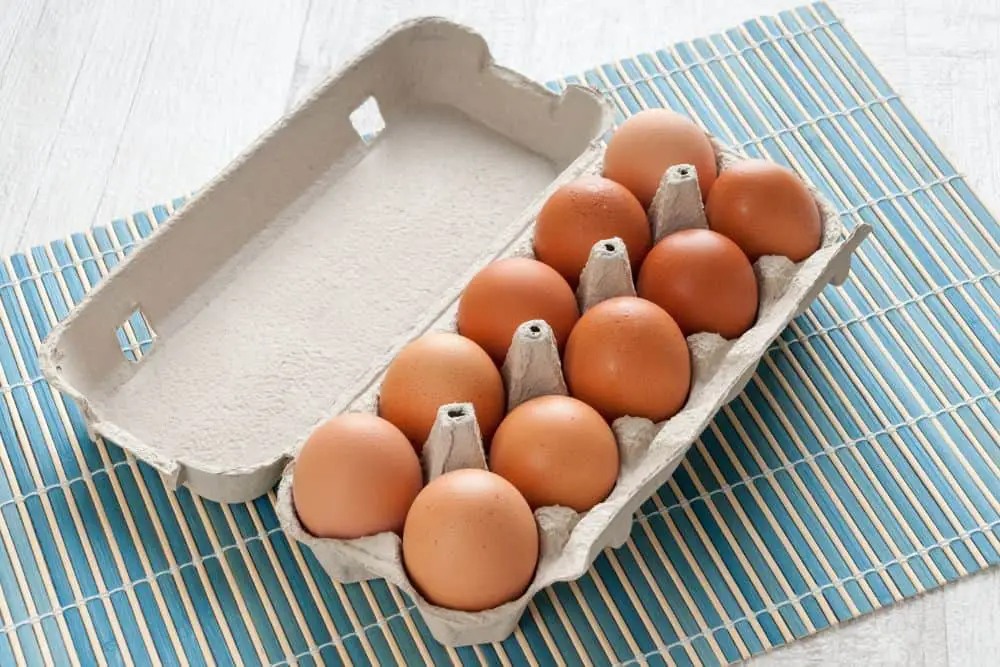There’s a lot of conflicting information about whether chicken eggs need to be refrigerated. Some say that as long as the eggs are coming from healthy, happily-caged chickens, they don’t need to be refrigerated. Others say that all eggs, regardless of where they come from, should be kept refrigerated in order to prevent salmonella poisoning. So, what’s the truth?
The answer, it turns out, is a bit complicated. In the United States, the FDA recommends that all eggs be kept refrigerated in order to prevent the growth of bacteria that can cause food poisoning. However, this recommendation is not based on any scientific evidence; rather, it’s based on the fact that eggs in the US are washed before they reach store shelves. This washing removes the “bloom,” a natural protective coating on the eggshell that prevents bacteria from penetrating the shell and contaminating the egg inside.
In Europe, on the other hand, eggs are not typically washed before they reach store shelves. As a result, most European countries do not recommend refrigerating eggs. The bloom helps protect the egg from contamination, so there’s no need to wash it off and no need to refrigerate it either.
Of course, even if you don’t wash your eggs before you eat them, it’s still important to handle them carefully in order to prevent bacteria from contaminating them. Make sure you wash your hands thoroughly after handling them and cook them thoroughly before eating.
How Long Are Fresh Eggs Good for Unrefrigerated?
One of the many benefits of keeping backyard chickens is having a never-ending supply of fresh eggs. However, if you don’t have a way to refrigerate your eggs, you might be wondering how long they will last unrefrigerated. Here’s a look at how long fresh eggs are good for unrefrigerated and some tips for storing them.
Generally speaking, fresh eggs will last for about two weeks, unrefrigerated. However, there are a few factors that can affect this timeframe, including the temperature and humidity of your environment and whether or not the eggs are washed. If you live in a hot, humid climate, your eggs may only last for one week, unrefrigerated. Conversely, if you live in a cool, dry climate, your eggs may last for three weeks unrefrigerated.
Washed eggs will also spoil faster than unwashed eggs because washing them removes the natural protective layer (called the “bloom”) that keeps them fresh. If you wash your eggs, use cool water and dry them thoroughly before storing them in the refrigerator.
Storing Fresh Eggs Unrefrigerated
There are a few different ways you can store fresh eggs unrefrigerated. One option is to keep them in an egg carton on a counter or on shelves in a cool, dark place—just make sure they’re not in direct sunlight. Another option is to bury them in the sand, sawdust, or rice in a covered container (such as a jar). Be sure to check on your stored eggs regularly to make sure they’re still fresh and to rotate them so that they all get used within the two-week timeframe.
How Long Do Fresh Eggs Last in the Fridge?
Fresh eggs are a delicious, nutritious, and affordable addition to any diet. But how long do they last in the fridge? Here’s everything you need to know about storing fresh eggs, so they stay fresh as long as possible.
Storing Fresh Eggs
Fresh eggs should be stored in the coldest part of your fridge, ideally in the back of the bottom shelf. You can also store them in an egg carton or egg holder, which will help keep them from getting jostled around and cracking. If you have a lot of fresh eggs, you can store them in the fridge door, but they won’t stay fresh for as long.
If you live in a warm climate or your fridge isn’t very cold, you can store your eggs in a cooler with ice packs. Just make sure the eggs are in an airtight container, so they don’t get wet.
How Long Do Fresh Eggs Last?
Ideally, fresh eggs should be used within 3-5 weeks of being laid. However, if they’re properly stored, they can last for 2-3 months. Once you crack an egg open, it will only last for 1-2 days in the fridge. So if you’re not planning on using all your eggs right away, it’s best to hard boil them and store them in the shell. Hard-boiled eggs can last for up to 1 week in the fridge.
How to Check if an Egg Is Fresh or ‘Good’
Eggs are a versatile ingredient that can be used in sweet or savory dishes. They can be eaten on their own, hard-boiled, soft-boiled, poached, scrambled, or used as a binding agent in baking. Because of their versatility, eggs are a common household staple. However, before you use them in your next dish, you need to make sure they are still good. Here’s a quick and easy guide on how to tell if an egg is fresh or ‘good.’
The Float Test
Fill a bowl with cold water and gently place your egg in the water. If the egg sinks to the bottom and lies on its side, it is very fresh. If the egg stands on its end at the bottom of the bowl, it is still good but not as fresh. If the egg floats to the top of the water, it is no longer good and should be discarded.
The Sniff Test
If you’re unsure whether an egg is still good after doing the float test, you can always crack it open and give it a sniff. A bad egg will have a sour smell that will be immediately apparent. If the egg doesn’t have any odor, it is still good.
Does Washing Eggs Prevent Salmonella?
We have all been taught to wash our hands after handling raw chicken or eggs, but does washing the eggs themselves prevent salmonella? According to Phyllis Stumbo (retired research nutritionist at the Roy J. and Lucille A. Carver College of Medicine), we may be washing away part of the protective coating that keeps bacteria out. Read on to learn more about keeping your eggs safe.
Salmonella is a type of bacteria that can cause food poisoning. It can be found in raw chicken and eggs. The main symptom of salmonella poisoning is diarrhea, which can lead to dehydration. Other symptoms include fever, vomiting, and stomach cramps.
You can reduce your risk of salmonella poisoning by cooking chicken and eggs thoroughly and washing your hands after handling them. But what about washing the eggs themselves? Does that prevent salmonella?
Stumbo says that the egg itself is not the problem. “Eggs inside the shell are extremely sterile. It’s when you crack the egg that bacteria on the shell can get inside.” She doesn’t recommend washing the eggs before putting them in the refrigerator. “Washing an egg wipes off part of the protective coating so bacteria can get inside more easily. If you want to wash the eggs, do so right before you use them.”
So there you have it! Unless you are going to use them immediately, there is no need to wash your eggs. And if you do wash them, make sure to cook them thoroughly afterward.
Related Questions
Why Do Farm Fresh Eggs Not Have to Be Refrigerated?
One of the main reasons why farm fresh eggs are not refrigerated is because they have a natural protective coating called the bloom. The bloom is a thin layer of mucous that covers the egg and seals in all the nutrients. This coating is applied to the egg when it is laid and helps to keep out bacteria and other contaminants.
Should You Wash Farm Fresh Eggs?
You might be tempted to wash your farm fresh eggs before using them, but it’s actually not necessary. The bloom that I mentioned earlier does an excellent job of keeping out bacteria. If you do choose to wash your eggs, make sure to keep them refrigerated until you use them.
What Are Meat Spots in Eggs?
If you’ve ever cracked open an egg and found a small dark spot floating in the yolk, don’t worry! It’s not meat, it’s just a blood spot. Blood spots occur when the chicken’s blood vessels rupture during laying. They’re perfectly safe to eat and don’t affect the flavor of the egg in any way.
In Conclusion
So, do chicken eggs need to be refrigerated? In the United States, the FDA recommends it; in Europe, they don’t. Ultimately, it’s up to you to decide what you want to do. If you’re worried about bacteria contamination, washing your eggs before you eat them and cooking them thoroughly should suffice. Otherwise, feel free to leave them out on the counter!

